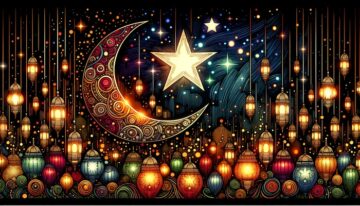From Stella Young with EssayGenius’s AI:
 The origins of Eid can be traced back to the time of the Prophet Muhammad in the 7th century. Eid al-Fitr, which translates to the “Festival of Breaking the Fast,” is celebrated at the end of Ramadan, the month of fasting. The significance of this festival lies in the completion of a month-long spiritual journey of self-discipline, reflection, and devotion to Allah. It is a time for Muslims to express gratitude for the strength and patience shown during Ramadan. The celebration of Eid al-Fitr is not only a personal milestone but also a communal event that reinforces the bonds of brotherhood and sisterhood among Muslims.
The origins of Eid can be traced back to the time of the Prophet Muhammad in the 7th century. Eid al-Fitr, which translates to the “Festival of Breaking the Fast,” is celebrated at the end of Ramadan, the month of fasting. The significance of this festival lies in the completion of a month-long spiritual journey of self-discipline, reflection, and devotion to Allah. It is a time for Muslims to express gratitude for the strength and patience shown during Ramadan. The celebration of Eid al-Fitr is not only a personal milestone but also a communal event that reinforces the bonds of brotherhood and sisterhood among Muslims.
Eid al-Adha, or the “Festival of Sacrifice,” commemorates the willingness of Prophet Ibrahim (Abraham) to sacrifice his son Isma’il (Ishmael) in obedience to God’s command. This event is rooted in the Quranic narrative and symbolizes faith, obedience, and submission to divine will. The festival occurs during the Islamic month of Dhu al-Hijjah, coinciding with the Hajj pilgrimage, one of the Five Pillars of Islam. The connection between Eid al-Adha and Hajj emphasizes the importance of sacrifice and devotion in the Islamic faith, making it a time of reflection on one’s relationship with God.
More here.
Enjoying the content on 3QD? Help keep us going by donating now.
